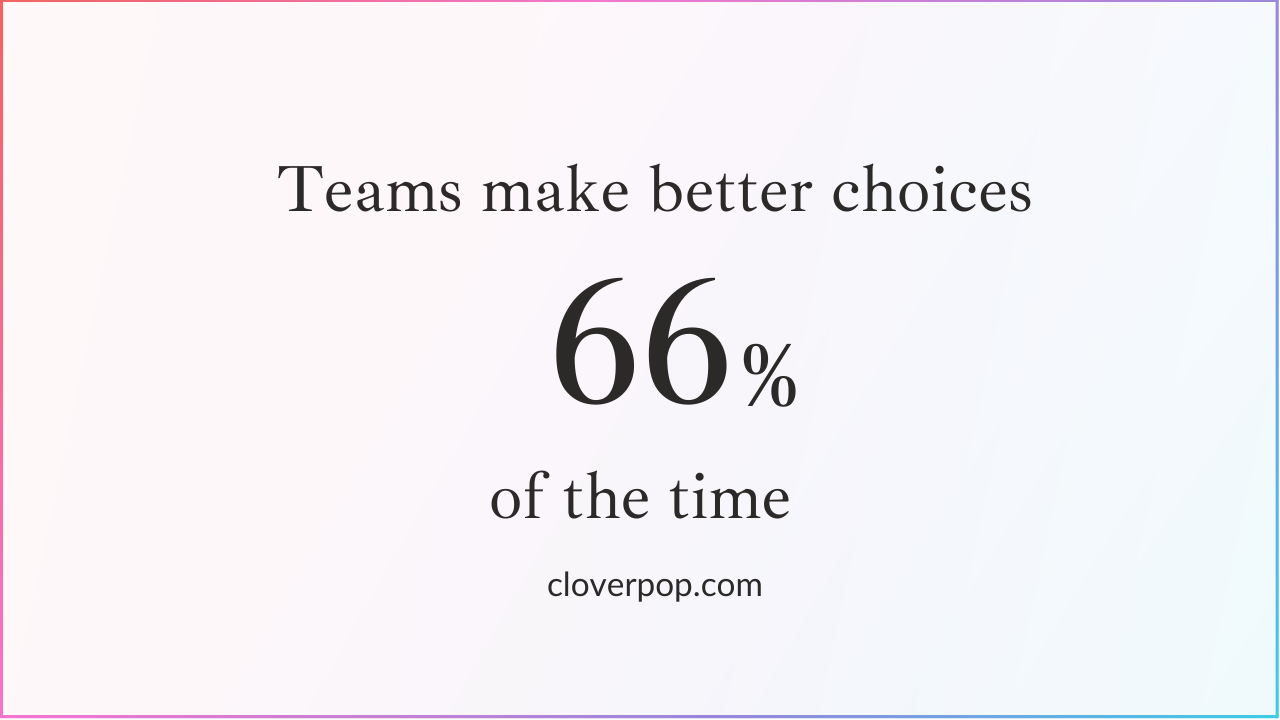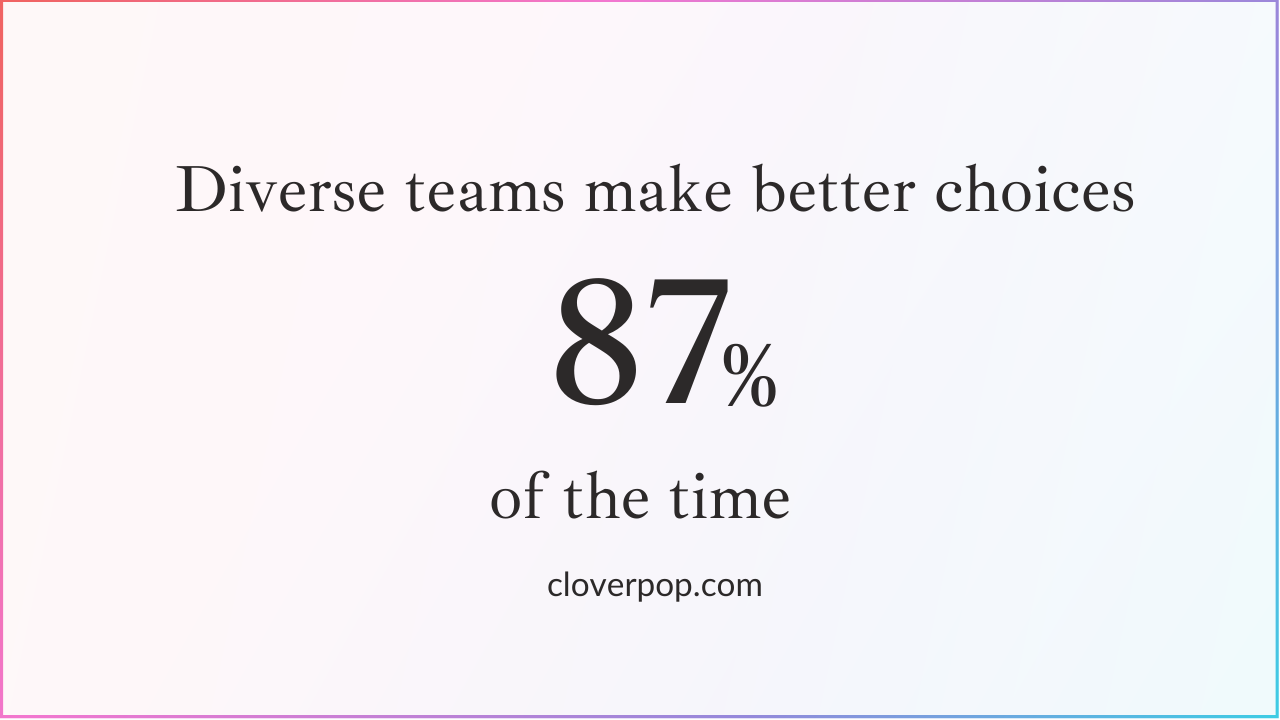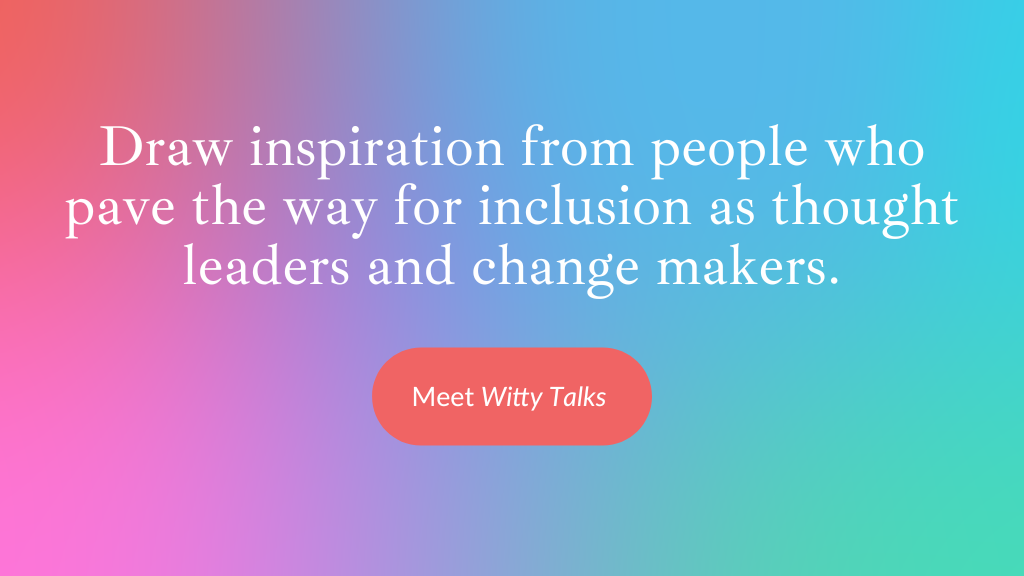 Communal language
Communal language
Strengthens collaboration and a sense of community
Use communal words to signal you value an environment where everyone can get involved and thrive.

Growing up, we learn to associate words like supportive or caring with women, emotional connection, and the joint pursuit of shared goals. We call these words communal. They resonate with people who grew up to value collaborative thinking, such as Generation Z and most who identify as female. The complexity of today’s business models and workplaces makes collaborative thinking a vital quality. Communal language gives you a win-win tool for nurturing inclusion and staff efficiency: It invites in community-driven people but doesn’t turn off people who won’t use communal words themselves.
👍
Our sales and online-marketing teams have been working together closely coordinating their efforts to reach our shared milestones for more inclusive and multiculturally aware product communication in the first quarter.👎
Sales and online-marketing have joined forces to reach our Q1 goals for more inclusive and multiculturally aware product communication.Nous saluons
- Research: Organizations That Move Fast Really Do Break Things (Dana Kanze, Mark A. Conley, and E. Tory Higgins)
- The motivation of mission statements: How regulatory mode influences workplace discrimination (Dana Kanze, Mark A. Conley, E. Tory Higgins)
- Stop Framing Wellness Programs Around Self-Care (Michelle A. Barton, Bill Kahn, Sally Maitlis, and Kathleen M. Sutcliffe)
- Social Relationships and Mortality Risk: A Meta-analytic Review (J Holt-Lunstad, TB Smith, JB Layton)
- Sexual Harassment of Women: Climate, Culture, and Consequences in Academic Sciences, Engineering, and Medicine. A Consensus Study Report. (Paula A. Johnson, Sheila E. Widnall, and Frazier F. Benya, Editors Committee on the Impacts of Sexual Harassment in Academia Committee on Women in Science, Engineering, and Medicine Policy and Global Affairs)




